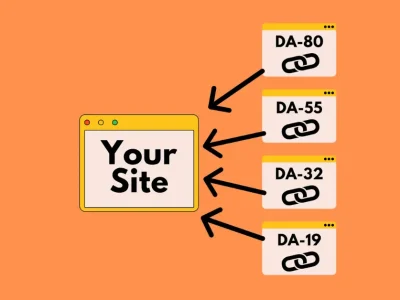Introduction
In the world of SEO, increasing your website’s domain authority (DA) is crucial for improving your search engine rankings and attracting organic traffic. But what exactly is domain authority, and how can you enhance it to benefit your business? In this comprehensive guide, we will explore the concept of domain authority, the factors that influence it, and effective strategies to increase your website’s authority and SEO performance.
What is Domain Authority?
Domain authority is a metric that predicts the ranking potential of a website on search engine result pages (SERPs). It is measured on a scale of 0 to 100, with higher scores indicating a greater likelihood of ranking well. Moz, a prominent SEO software company, developed the domain authority metric to help businesses understand their competitiveness in search rankings.
How is Domain Authority Calculated?
Domain authority is influenced by various factors, including the number and quality of backlinks pointing to your website, the relevance of those backlinks, the quality of your website’s content, and its overall SEO performance. Moz’s algorithm takes these factors into account and assigns a domain authority score based on their analysis.
Understanding the Importance of Domain Authority
While domain authority is not a direct ranking factor used by search engines like Google, it is still an essential metric for understanding your website’s competitiveness and potential to attract organic traffic. A higher domain authority score indicates stronger ranking potential and a better chance of outranking competitors for relevant keywords.
The Relationship Between Domain Authority and Page Authority
It’s important to note that domain authority and page authority are distinct metrics. While domain authority measures the overall strength of a domain, page authority focuses on the ranking potential of individual pages. A website with high-quality pages will likely have a higher domain authority score, as the authority of individual pages contributes to the overall authority of the domain.
Strategies to Increase Domain Authority
Now that we have a clear understanding of domain authority, let’s delve into effective strategies to enhance your website’s authority and improve your SEO performance.
1. Build a Strong Backlink Profile
One of the most influential factors in determining domain authority is the quality and quantity of backlinks pointing to your website. Focus on acquiring high-quality backlinks from reputable websites that are relevant to your industry. Natural link building, where other websites link to your content organically, is an effective approach. Create exceptional content that is informative, unique, and shareable to attract valuable backlinks.
2. Optimize On-Page SEO Elements
On-page SEO optimization plays a crucial role in boosting your website’s authority. Optimize your page titles, meta descriptions, headings, URL structure, and content with relevant keywords. Ensure your website loads quickly, has a mobile-friendly design, and provides an excellent user experience. Internal linking within your website also helps to signal the relevance and authority of your content.
3. Enhance Technical SEO
Technical SEO refers to the backend optimization of your website to improve its crawlability and indexability by search engines. Register your website with Google Search Console and Bing Webmaster Tools to monitor its performance and identify any technical issues. Create and submit an XML sitemap to help search engines understand the structure of your website. Optimize your robots.txt file to control which pages search engines can crawl. Implement structured data (schema markup) to provide additional context to search engines.
4. Focus on Mobile-Friendliness
With the increasing dominance of mobile search, having a mobile-friendly website is crucial for both user experience and SEO. Optimize your website for mobile devices by using responsive design, ensuring proper rendering on different screen sizes, and improving page load speed on mobile. Mobile-friendly websites are more likely to attract visitors, earn backlinks, and enhance user engagement, which indirectly contributes to domain authority.
5. Improve Page Speed
Website speed is a critical factor in both user experience and search engine rankings. A slow-loading website frustrates users and leads to higher bounce rates, negatively impacting your domain authority. Optimize your website’s performance by compressing images, minifying CSS and JavaScript files, leveraging browser caching, and using content delivery networks (CDNs) for faster delivery of your web pages.
6. Increase Social Signals
Social signals, such as the number of social media shares, likes, and comments, can indirectly influence your domain authority. Engage with your audience on social media platforms and encourage them to share your content. Social signals indicate the popularity and relevance of your website, attracting more organic traffic and potential backlinks.
7. Patience and Persistence
Increasing your domain authority is a long-term process that requires patience and persistence. Keep creating high-quality content, acquiring authoritative backlinks, and optimizing your website for SEO. Monitor your domain authority score periodically and track improvements over time. Remember that domain authority is a comparative metric, so focus on outperforming your competitors rather than obsessing over achieving a perfect score.
Conclusion
Domain authority is an essential metric for understanding your website’s ranking potential and competitiveness in search results. By implementing effective strategies to increase your domain authority, such as building a strong backlink profile, optimizing on-page SEO elements, and enhancing technical aspects, you can improve your website’s authority and boost your SEO rankings. Remember to prioritize user experience, create valuable content, and stay consistent in your efforts. With time and dedication, your website’s domain authority will rise, leading to increased organic traffic and improved online visibility.










